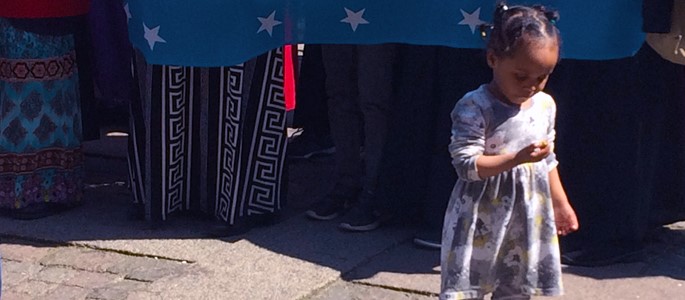Update on Somali withdrawal cases
The Danish Refugee Appeals Board has confirmed revocation of asylum status in the first two cases out of 800 taken up for review
Until now, 110 cases have been decided by Danish Immigration Service (first instance), and of these 67% have had their residence permit withdrawn. In fact, there are 1,500 persons included, as the 800 asylum cases have led to 700 family reunifications which are also at risk of withdrawal now. Immigration Service expects to get through all the cases during summer.
Some of the Somalis who are now under review, came to Denmark as UN resettlement refugees. This is probably the first time that any European country has revoked the asylum status for this type of refugees, and it goes directly against UNHCRs own description of the program, saying: “ a durable solution” where a state “admit them and ultimately grant them permanent settlement.” Refugees who have been granted convention status (§7,1) are, however, not at risk of revocation.
I you have your residence permit withdrawn by Immigration Service, it’s your own responsibility to file a compliant to the Refugee Appeals Board within 7 days. We don’t know how many who have done this. But tow of the cases have, as it is, already had the decision confirmed, which means the withdrawal is final and can’t be appealed further. Both cases concerned people from Mogadishu, who were granted asylum in 2012, so there is not yet any practice on areas under control of the Al-Shabaab.
Danish Refugee Council, who wrote in the recent fact finding report together with Danish Immigration Service, which the decisions are partly based on, disagree on the interpretation and find the security situation in Mogadishu far too fragile to start revoking permits and preparing deportations.
In fact, it is not possible to actually return Somalis, as Denmark has no agreement with the Somali authorities on this. Only very few rejected Somalis have been returned forcefully since the civil war broke out in 1991, and this has taken place in deepest secrecy and only a few persons at a time. Many of those who were granted asylum in 2012 as a result of a decision at ECHR had before that been rejected and spent several years in the Danish asylum camps.
In 2016, Denmark gave asylum to only 25% of new coming Somali asylum seekers, as opposed to Germany where 82% got a positive decisions and Sweden who accepted 47%.
As far as we have been informed, one of the two recently decided cases concerned a family with small children, of which some were daughters. This indicates that the Board has rejected the risk of FGM (female genital mutilation) as an asylum motive for the girls. This is in contradiction to the guidance notes from UNHCR about FGM, describing it as a clear reason for protection of girls and women, when at the same time considering back ground information on Somalia, showing that up to 99% of all girls are exposed to FGM in the most drastic form, and that parents are not able to prevent the clan performing the mutilation on their daughters.
There are around 9,000 people with Somali background living in Denmark.
Please find good advice here from Danish Refugee Council to Somalis who have received a letter about possible withdrawal (in Somali).
What is the opinion of Refugees Welcome?
We think that refugees generally should be granted permanent residency from the beginning. It tends to take many years before the ares that they come from are sufficiently safe again, and therefore refugees should be seen as longterm investments and not as people who are staying for a short period. In regard to Somalia, it is questionable whether there is in fact an improvement in the security situation at all. Besides, Denmark has no deal with Somalia about returnees, so in fact people will be moved from a normal life in society to a stay in the deportation camps that could last for many years. Finally there is the question of FGM, where we believe the Danish state has an obligation to protect girls living in Denmark against a serious risk of mutilation, defined as torture and gender persecution by the UN, and therefore falling under several conventions that Denmark is a signatory to.
Earlier articles on this issue:
Somali refugees are expelled on illegal grounds
New practice: Somalis risk losing residence permits after 4 years


